Thank Your Lucky Stars

Brief Synopsis
Cast & Crew
David Butler
Humphrey Bogart
Eddie Cantor
Bette Davis
Olivia De Havilland
Errol Flynn
Film Details
Technical Specs

Synopsis
Farnsworth and Dr. Schlenna, two producers who are planning a benefit extravaganza, want Dinah Shore, a singer on Eddie Cantor's radio show, to appear in their benefit, but they must first make a deal with Cantor, who holds her contract. Farnsworth fears that Cantor will want to interfere in the production in exchange for Dinah's participation. Meanwhile, outside the Hollywood studio, aspiring actor Joe Simpson gathers a group of tourists for a tour of stars' homes. Although a talented dramatic actor, Joe is unable to find work because he so closely resembles Cantor that people start to laugh as soon as they see him. While Joe waits for one last customer, songwriter Pat Dixon demands her money back from Barney Jackson, a talent agent who had promised to sell her song. When Jackson makes his escape in a taxi, Pat jumps on Joe's bus, mistaking it for another taxi, and realizes the truth too late to get off. After Joe learns of Pat's problems, he offers her a place to stay in the Gower Gulch studio area where his friends, all aspiring entertainers, have built houses out of old movie sets. Among the group are Spike Jones and his City Slickers, a goofy, energetic band, and Tommy Randolph, a singer. Tommy, an unknowing victim of Jackson's trickery, believes that he has a contract to sing with Cantor. The following day, Tommy arrives at Cantor's home, where Farnsworth and Schlenna are doggedly trying to obtain Dinah's services. After some confusion, Cantor has Tommy thrown out of his house, and the producers agree to make Cantor chairman of the benefit committee in return for Dinah's appearance in the show. Despite his promise not to interfere, Cantor makes changes in all the production numbers until Farnsworth, pretending to be a reporter, calls Cantor on the telephone and encourages him to tell his life's story. When Pat learns about the benefit, she suggests that Tommy crash the performance and sing in front of a professional audience. With Pat's help, Tommy sneaks backstage, but is once again kicked out by Cantor. Pat is not defeated, however, and proposes that Joe impersonate Cantor. A few members of the Gower Gulch gang kidnap Cantor, to the delight of Farnsworth and Schlenna. They are nonplussed when Joe appears, but as his only demand is that Tommy be allowed to sing, they continue with rehearsals before the man they think is Cantor changes his mind. After all the stars who have assembled for the show perform, Tommy sings and is such a hit that movie mogul Jack Warner offers to sign him to a contract. Before the end of the show, Cantor escapes from his captors and returns to the theater, but Joe continues his masquerade and joins the company for the grand finale.

Director
David Butler
Cast

Humphrey Bogart

Eddie Cantor

Bette Davis
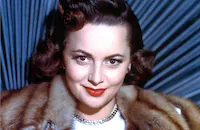
Olivia De Havilland

Errol Flynn

John Garfield
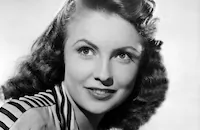
Joan Leslie

Ida Lupino

Dennis Morgan
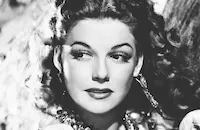
Ann Sheridan
Dinah Shore

Alexis Smith

Jack Carson

Alan Hale

George Tobias

Edward Everett Horton

S. Z. Sakall

Hattie Mcdaniel
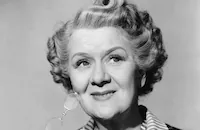
Ruth Donnelly
Don Wilson

Spike Jones

Richard Lane
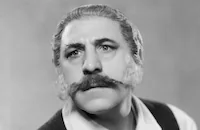
Henry Armetta
Joe Derita
Don Barclay
Noble Johnson
Dick Rich
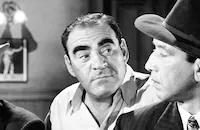
Ralph Dunn

James Burke

Paul Harvey
Frank Mayo

Mike Mazurki
Frank Faylen
Eleanor Counts
Harry Pilcer
Angi O. Poulos
Duke York
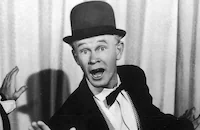
Billy Benedict
Helen O'hara

Juanita Stark
Bennie Bartlett
Jerry Mandy
Betty Farrington
Billy Wayne
William Haade
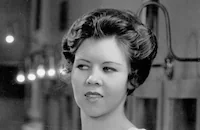
Mary Treen
Lou Marcelle
Ed Gargan
Bert Gordon

Jack Mower
Creighton Hale
Stanley Clements
James Copedge
Leah Baird
Joan Matthews
Phyllis Godfrey
Lillian West
Morgan Brown
George French
Charles Soldani
J. W. Cody

Marjorie Hoschelle
Anne O'neal
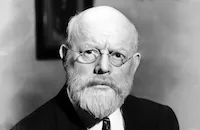
Howard Mitchell

James Flavin
Rita Christiani

Willie Best
Jess Lee Brooks
Matthew Jones
Ford, Harris And Jones
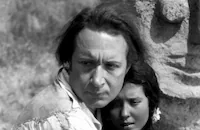
Monte Blue
Art Foster
Fred Kelsey
Elmer Ballard
Buster Wiles
Tudor Williams
Allan Cooke
Frederick Mcevoy
Bobby Hale
Will Stanton

Charles Irwin
David Thursby
Henry Iblings
Earl Hunsaker
Hubert Head
Dudley Kuzzell
Ted Billings
Jack Norton
Henri Desoto
Harry Adams
Sam Adams
Conrad Wiedell
Joan Winfield
Charles Francis
Harry Bailey
Sylvia Opert
Nancy Worth
Harriett Haddon
Harriett Olsen
Nancy Worth
Joy Barlowe
Janet Barrett
Dorothy Schoemer
Dorothy Dayton
Lucille Lamarr
Sylvia Opert
Mary Landa
Dick Earle
Dick Elliott
Matt Mchugh

Joyce Reynolds
Georgia Lee Settle
Virginia Patton
Igor Denavrotsky
Arnold Kent

Brandon Hurst
Angelita Mari

Lynne Baggett
Mary Landa
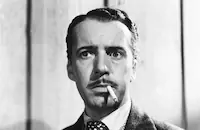
Boyd Irwin
Lelah Taylor
Mark Hellinger
David Butler
Esperanza Domingues
Iris Flores
Maruca Sacasa
Estella Cheesman
Margarita Sevilla
Inez Torres
Paulita Arviza
Jacqueline Murray
Nadine Murray
Crew
Milo Anderson
Harold Arlen
Dudley Chambers
Arthur Edeson
Herbert Farjeon
Leo F. Forbstein
Charles David Forrest
Melvin Frank
Everett Freeman
Anton Grot
Mark Hellinger
James V. Kern
H. F. Koenekamp
Leo E. Kuter
Frank Loesser
Lynn Martin
Johnny Mercer
Irene Morra
Norman Panama
Leroy Prinz
Phil Quinn
Francis J. Scheid
Arthur Schwartz
Arthur Schwartz
Jack L. Warner
Perc Westmore

Videos
Movie Clip




Trailer
Film Details
Technical Specs

Award Nominations
Best Song
Articles
Thank Your Lucky Stars
Warner Bros' all-star extravaganza Thank Your Lucky Stars (1943) not only served as a morale booster for the troops, it also succeeded as a charity effort, with stars donating their $50,000 salaries to the Hollywood Canteen. The musical numbers in the film hang on a flimsy plot about an unknown songwriter and an unknown singer (played by Joan Leslie and Dennis Morgan) who end up appearing in a wartime benefit show. Eddie Cantor plays a dual role, both as an over-the-top, egomaniacal version of himself, and as a sweet-natured tour bus driver who can't get a job as an actor because he looks too much like Eddie Cantor. The entertainer's self-parodying performance, along with those of beloved character actors S.Z. ("Cuddles") Sakall and Edward Everett Horton, are engaging. But the real fun of Thank Your Lucky Stars is seeing Warner Bros.'s top stars kick up their heels in song-and-dance numbers.
Dramatic divas Ida Lupino and Olivia de Havilland chewed gum through a jazzy vaudeville number. De Havilland claimed the gum was her idea to disguise the fact that she was lip-synching her vocals, which were dubbed by Lynn Martin. Errol Flynn plays a boastful cockney sailor, lampooning his war hero image in the jaunty musical number, "That's What You Jolly Well Get." Hattie McDaniel and Willie Best have fun with a novelty number, Ann Sheridan sings a torch song, and Alexis Smith shows off the dancing skills that would win her acclaim decades later in Stephen Sondheim's Broadway musical, Follies (1971).
Appropriately, two of the biggest hits in Thank Your Lucky Stars were performed by the founders of the Hollywood Canteen, John Garfield and Bette Davis. Garfield made fun of his screen image, singing a tough-guy version of "Blues in the Night." And Davis wrapped her distinctive voice around a new song by Frank Loesser and Arthur Schwartz, "They're Either Too Young or Too Old." In the song, Davis complains that her man is off to war, and that the only available men who aren't drafted are geezers or pups. The elegantly dressed Davis enters a club looking for a dance partner, and ends up with young Conrad Wiedell (actually a real dance contest winner), who proceeds to fling her around in a wild jitterbug. Davis recalled in her memoirs that Wiedell was terrified that he'd hurt her. Davis told him, "forget about who I am...let your instincts come to the fore, and just do it!" Wiedell did just that, and the number was a sensation. The song was Loesser's first big hit (he would go on to write the songs for Guys and Dolls) and was nominated for an Academy Award, losing to "You'll Never Know" by Harry Warren and Mack Gordon (from the film, Hello Frisco, Hello). Kitty Kallen and the Jimmy Dorsey Orchestra had a hit with "They're Either Too Young or Too Old," and the song made it to number one on the radio program, The Lucky Strike Hit Parade. Davis would sing it many times over the years.
The real musicians featured in Thank Your Lucky Stars didn't fare so badly either. This was Dinah Shore's film debut, and the reviews took note of her talents. The Variety critic called her "a standout" in her three musical numbers, and added, "she photographs well, can wear clothes that are keyed strictly to eye-appeal....from here on, this songstress is a natural for films." Although Shore never had a big film career, she was very successful in radio and television. Critics also liked the antics of comic musician Spike Jones, and the singing of Dennis Morgan and Joan Leslie. In fact, the New York Times' Bosley Crowther noted, Thank Your Lucky Stars was too much of a good thing: "Too many people sing....It is also too much (two hours) of a show. But in straight omnibus entertainment, that's what you have to expect."
Director: David Butler
Producer: Mark Hellinger, Jack L. Warner
Screenplay: Norman Panama, Melvin Frank, James V. Kern, based on a story by Everett Freeman & Arthur Schwartz
Cinematography: Arthur Edeson
Editor: Irene Morra
Costume Design: Milo Anderson
Art Direction: Anton Grot, Leo K. Kuter
Music: Arthur Schwartz, Frank Loesser
Principal Cast: Eddie Cantor (Joe Simpson/Himself), Joan Leslie (Pat Dixon), Dennis Morgan (Tommy Randolph), S.Z. Sakall (Dr. Schlenna), Edward Everett Horton (Farnsworth), Ruth Donnelly (Nurse Hamilton), Joyce Reynolds (Girl With Book), Richard Lane (Barney Johnson).
BW-128m. Closed captioning.
by Margarita Landazuri

Thank Your Lucky Stars
Quotes
Dinah, Please tell them that I'm Cantor and I'll double your salary.- Eddie Cantor
I don't know who you are, but if you'll double my salary, you're certainly not Cantor!- Dinah Shore
Trivia
Some prints are missing Bette Davis' part.
Reportedly the only film in which Bette Davis actually sings. The Oscar-nominated song "They're Either Too Young or Too Old" introduced here by Davis became a hit for Jimmy Dorsey with vocalist Kitty Kallen.
Notes
Both producer Mark Hellinger and director David Butler make brief appearances as themselves in the film. Hollywood Reporter news items add the following information about the production: The scene in which "Joe" tours stars' homes was filmed on the streets north of Sunset Blvd in Beverly Hills, CA. Herman Mankiewicz was announced as a writer, but his contribution to the final film, if any, has not been determined. Paul Henreid was replaced by George Tobias when Henreid could not learn a jitterbug routine. The film used the "heaven" sets from the Warner Bros. 1936 film Green Pastures and also the background sets from the Al Jolson number "Going to Heaven on a Missouri Mule" from the 1934 Warner Bros.' film Wonder Bar (see AFI Catalog of Feature Films, 1931-40; F3.5199).
Spike Jones and His City Slickers and Dinah Shore made their motion picture debuts in this film. In the film, Bette Davis sings and dances the jitterbug; Errol Flynn sings a sea chanty, John Garfield satirizes the Warner Bros.' film Blues in the Night (see entry above); Jack Carson and Alan Hale perform a vaudeville routine; Oliva de Havilland, George Tobias and Ida Lupino perform an energetic dance; Ann Sheridan sings "Love Isn't Born, It's Made;" Alexis Smith dances; Willie Best and Hattie McDonald sing and dance; and Humphrey Bogart spoofs his hard-boiled persona. Bert Gordon, also known as "The Mad Russian," who appears in the film as the lobotomy patient, was a regular on Eddie Cantor's radio program from 1935-49. Arthur Schwartz and Frank Loesser's song, "They're Either Too Young or Too Old," was nominated for an Academy Award.

Miscellaneous Notes
Released in United States 1943
Released in United States 1943














